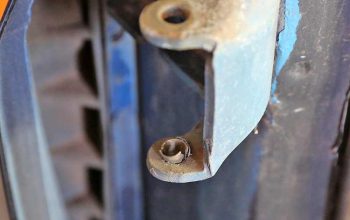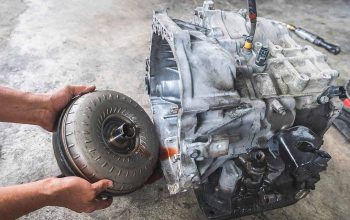If you notice a burning oil smell through your vents, it is crucial to address the issue promptly to prevent potential damage or hazards. Have you ever detected a burning oil smell coming through your car’s vents?
If so, it’s essential not to ignore this issue. A burning oil smell can indicate a serious problem with your vehicle that needs immediate attention. Ignoring the issue can lead to further damage and potential safety hazards. We will discuss the common causes of a burning oil smell through vents and provide you with possible solutions to remedy the problem.
By understanding the underlying issues and taking appropriate action, you can avoid costly repairs, ensure your safety on the road, and maintain the longevity of your vehicle. So, let’s delve into the potential causes and solutions for a burning oil smell through your car’s vents.
Common Signs Of A Burning Oil Smell
One common sign of a burning oil smell in your car is the distinct odor that you may notice. The smell can be quite strong and unpleasant, often described as a burning or oily scent. It is important to recognize this smell as it could indicate a potential issue with your vehicle.
Additionally, you may notice the smell while driving. This could be a sign that there is an oil leak somewhere in your car’s engine or exhaust system. It is important to address this issue promptly to avoid any further damage to your vehicle.
Overall, if you are experiencing a burning oil smell coming through the vents of your car, it is important to have it checked by a professional. They will be able to diagnose the issue and provide the necessary repairs to ensure the safety and functionality of your vehicle.

Credit: m.youtube.com
Possible Causes For The Burning Oil Smell
When it comes to a burning oil smell through vents, there are several possible causes that you should be aware of. One of the potential culprits could be worn-out or damaged engine components. These components may be causing oil to leak and create a burning smell. Another possibility could be leaking oil seals or gaskets, which can also result in oil seepage and the subsequent odor.
In addition, oil leaks from external sources can contribute to a burning oil smell. These leaks might be coming from sources such as oil filters, oil pans, or other areas where oil can escape. Lastly, an overfilled oil reservoir can also be a reason for the smell. When the oil level is too high, it can lead to excessive heat and oil consumption, resulting in a burning odor.
| Worn-out or damaged engine components |
| Leaking oil seals or gaskets |
| Oil leaks from external sources |
| Overfilled oil reservoir |
Checking The Engine Oil Level And Condition
A burning oil smell through vents can be a sign of an engine oil issue. To check the engine oil level and condition, start by locating the dipstick. The dipstick is usually yellow or orange and can be found near the engine. Once you have located it, pull it out and wipe it clean. Then, reinsert the dipstick fully and pull it out again to assess the color and consistency of the oil.
Inspect the oil on the dipstick to see if it is transparent and amber in color, which indicates clean oil. If the oil appears black or dirty, it may be time for an oil change. Additionally, check for any metal particles or a burnt smell, as these may be signs of engine damage. It is important to monitor the oil level and condition regularly to ensure your engine remains in good health.
Inspecting For Visible Oil Leaks
Inspecting for visible oil leaks is crucial when dealing with a burning oil smell through vents. It is essential to examine the engine and surrounding components for potential areas of leakage. Once the hood is open, pay close attention to any signs of oil drips or stains on the engine block, oil filter, or oil pan. Additionally, inspect the valve covers and gaskets for any visible signs of oil seepage. A flashlight can be helpful in identifying small leaks that might be difficult to spot otherwise. Remember to check the area around the oil filler cap as well, as a loose or damaged cap can lead to oil leaks. Keeping an eye on the oil level and regularly changing the oil filters can also prevent future leaks and maintain the overall health of the engine.
Examining The Exhaust System
When experiencing a burning oil smell through vents, it is crucial to examine the exhaust system for any potential issues. One important step is to check for excessive smoke or soot, as this can indicate a problem with the engine or exhaust components. Additionally, evaluating the condition of the catalytic converter is essential to determine if it is functioning properly.
Replacing Worn-out Or Damaged Engine Components
When it comes to the burning oil smell through vents, it may be a sign of worn-out or damaged engine components. Understanding the role of various engine parts can help in the process of engine repair or replacement.
The engine consists of several essential components, such as the pistons, cylinders, piston rings, valves, and gaskets. These parts work together to ensure the smooth functioning of the engine.
Over time, these components can wear out or become damaged due to factors like normal wear and tear, lack of maintenance, or poor quality oil. When this happens, it can lead to issues such as oil leaks or excessive oil consumption.
If you notice a burning oil smell through vents, it is important to address the issue promptly. Ignoring the problem can lead to further damage to the engine and potentially costly repairs.
Replacing worn-out or damaged engine components requires expertise and knowledge. It is recommended to consult a professional mechanic who can accurately diagnose the issue and provide the necessary repairs or replacements.
In conclusion, understanding the role of various engine parts and addressing any signs of damage or wear can help in maintaining a healthy engine and preventing issues like the burning oil smell through vents.
Fixing Oil Leaks And Seals/gaskets
If you notice a burning oil smell coming through the vents in your car, it is likely due to an oil leak. Identifying the leaking point is the first step in resolving this issue. Start by checking the oil level and looking for any visible signs of leaks around the engine area. Pay attention to areas such as the valve cover gasket, oil pan gasket, or the seal around the oil filter. If you notice any oil stains or wet spots, it is an indication of a leak. Once you have identified the leaking point, you can proceed with repairing or replacing the affected parts. It is essential to fix the oil leaks promptly to prevent any further damage to your vehicle and ensure its smooth operation.
Addressing External Oil Leaks
One common issue that car owners may encounter is the smell of burning oil coming through the vents. This can be a cause for concern as it indicates a possible external oil leak. When faced with this problem, there are a few steps you can take to address it.
Firstly, it is important to inspect the oil filter and drain plug. These components can become damaged or worn over time, leading to leaks. Check for any signs of oil around the filter or drain plug and if necessary, replace them.
Additionally, thoroughly examine other parts of the engine for any visible signs of leakage. Look for oil stains or drips on the ground beneath the vehicle. In some cases, the oil leak may be originating from a different location and traveling through the ventilation system.
If a leak is identified, it is crucial to repair or replace the damaged components as soon as possible. Ignoring an oil leak can result in further damage to the engine and potentially costly repairs. Regular maintenance and prompt attention to oil leaks can help ensure the longevity and performance of your vehicle.
Regular Maintenance And Oil Changes
Regular maintenance and oil changes are essential for the proper functioning of your vehicle. Following the manufacturer’s recommendations is crucial in order to keep your car running smoothly and prevent any potential issues. One important aspect to consider is choosing the right type and grade of oil for your engine. Using the correct oil helps to lubricate the engine parts effectively, reducing wear and tear and extending the engine’s lifespan. It also plays a role in preventing a burning oil smell from coming through the vents. When selecting oil, refer to the manufacturer’s specifications outlined in the owner’s manual. It will provide you with information on the recommended viscosity, oil filters, and intervals for oil changes. By adhering to these guidelines and staying up to date on maintenance, you can minimize the likelihood of a burning oil smell in your car.
Monitoring Oil Levels And Quality
Burning oil smell through vents is a common issue faced by many car owners. It is important to monitor oil levels and quality to prevent this problem. Conducting regular oil level checks is crucial in maintaining the proper functioning of your vehicle. Make sure to use high-quality oils and additives that are recommended by the manufacturer.
Keeping The Engine Clean And Tidy
Experiencing a burning oil smell through vents can be a cause for concern. To prevent this issue from occurring, it is important to take certain steps to keep your engine clean and tidy.
One way to prevent a burning oil smell is by avoiding excessive oil spills. Ensure that the oil cap is tightened properly after every oil change or top-up. Regularly inspect the engine for any signs of oil leaks, such as stains or puddles under the car. Address any leaking issues promptly to avoid oil dripping onto the engine and generating a burning odor.
Maintaining a clean engine can also help prevent a burning oil smell. Regularly clean engine components such as the oil pan, valve cover, and oil filter housing. Use a degreaser and a soft brush to remove built-up oil and grime. Clean the engine bay as well, as accumulated dirt and debris can contribute to a foul burning smell.
Note: It’s important to consult with a professional mechanic if the burning oil smell persists or if you are unsure about any maintenance procedures.
Frequently Asked Questions On Burning Oil Smell Through Vents
Why Do I Smell Oil Through My Air Vents?
The presence of oil odor through your air vents indicates a potential issue with your HVAC system. It could be due to a leak in the oil supply line or a malfunctioning oil burner. Contact a professional technician to inspect and repair your system promptly.
Why Does My Burning Oil Smell But No Leak?
The burning oil smell without a leak could be due to an internal engine issue, like a worn-out gasket or piston ring, causing oil to burn within the combustion chamber. It’s important to have a professional diagnose and address the problem to prevent further damage.
Why Do I Get A Burning Smell Coming From My Vents?
A burning smell from your vents may indicate a problem with your HVAC system. It could be due to an overheating motor, electrical issue, or a clogged filter. Get it checked by a professional to ensure proper functioning and prevent any potential hazards.
Why Does My House Smell Like Burning Oil?
Your house may smell like burning oil due to a malfunctioning furnace or oil-based appliance. This can be caused by leaks, heating element issues, or clogged filters. It’s essential to address this immediately to prevent potential fire hazards or respiratory problems.
Seek professional assistance for troubleshooting and repairs.
Conclusion
If you notice a burning oil smell through your vents, it is crucial to take immediate action. Ignoring the issue can lead to dangerous consequences, such as engine damage or potential fires. By addressing the problem promptly, you can prevent further complications and ensure the safety of your vehicle and passengers.
Be sure to consult a professional mechanic for diagnosis and repair to keep your car running smoothly and odor-free.


